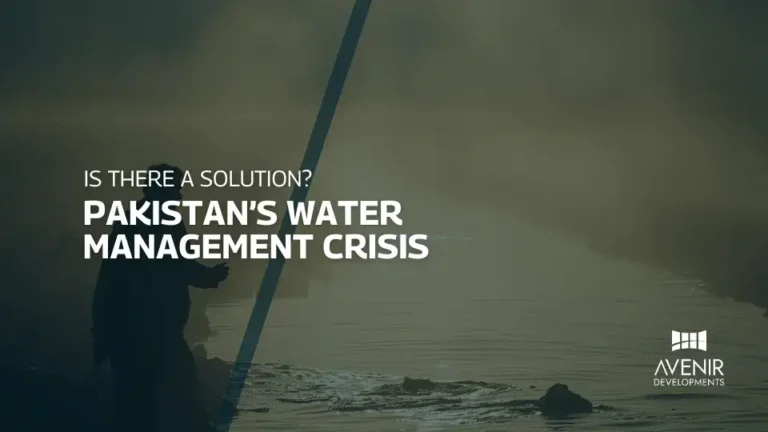Water management is a critical issue in Pakistan, a nation grappling with the twin challenges of rapid population growth and dwindling water resources. The country’s reliance on agriculture, coupled with inefficient irrigation practices and the specter of climate change, has exacerbated the water crisis. This article delves into the complexities of Pakistan’s water predicament, exploring innovative solutions and strategies to ensure a sustainable water future.
I’ve witnessed firsthand the devastating impact of water scarcity during my travels through Pakistan’s arid regions. The stark reality is that without decisive action, the situation is poised to worsen. However, there is hope. Through a combination of technological advancements, policy reforms, and community engagement, Pakistan can overcome these challenges and secure a water-secure future for its people.
This article will provide a comprehensive overview of Pakistan’s water crisis, examine current challenges and opportunities, and present actionable solutions. By understanding the gravity of the situation and exploring innovative approaches, we can contribute to building a more resilient and water-secure Pakistan.
Pakistan’s Water Crisis: A Deepening Divide
Pakistan’s water crisis is a complex issue with far-reaching implications for its economy, agriculture, and society. The country’s burgeoning population, coupled with a rapidly changing climate, has strained water resources to their limits. Over-exploitation of groundwater, inefficient irrigation practices, and the unequal distribution of water have exacerbated the problem.
The Indus River system, once a lifeline for the nation, now faces unprecedented pressures. Declining river flows, coupled with increased water demand, have led to severe water shortages in many parts of the country. The agricultural sector, which is the backbone of Pakistan’s economy, is particularly vulnerable to water scarcity. Farmers are struggling to meet the demands of a growing population while dealing with erratic weather patterns and diminishing water availability.
The consequences of Pakistan’s water crisis are manifold. Reduced agricultural productivity, food insecurity, and economic losses are just a few of the challenges the country faces. Moreover, water scarcity can lead to social unrest and conflict as communities compete for limited resources. It is imperative that Pakistan adopts a comprehensive and integrated approach to water management to address these pressing issues.
To effectively tackle the water crisis, it is essential to understand the underlying causes and develop tailored solutions. By investing in water conservation, improving irrigation efficiency, and promoting sustainable water use practices, Pakistan can pave the way for a water-secure future.
The Current State of Water Management in Pakistan
Pakistan’s water management landscape is complex, characterized by a mix of traditional practices and emerging challenges. The Indus Water Treaty, while instrumental in managing water resources, has its limitations in addressing the country’s internal water distribution issues.
Inefficient irrigation systems, particularly in the agriculture sector, remain a major culprit in water wastage. Traditional flood irrigation methods lead to significant water losses through evaporation and seepage. Moreover, the lack of proper drainage infrastructure has contributed to waterlogging and salinity issues, further compromising agricultural productivity.
Groundwater overexploitation is another pressing concern. With declining surface water availability, farmers and communities have increasingly relied on groundwater, leading to a depletion of this vital resource. The quality of groundwater has also deteriorated in many areas due to contamination from agricultural runoff and industrial effluents.
Climate change has exacerbated Pakistan’s water challenges, with more frequent and intense droughts and floods. These extreme weather events disrupt water availability, increase water demand for disaster response, and pose significant risks to infrastructure and livelihoods.
To address these issues, Pakistan needs to adopt a multi-faceted approach that includes improving water governance, investing in infrastructure, promoting water conservation, and fostering public awareness. By implementing effective water management strategies, the country can mitigate the impacts of water scarcity and ensure a sustainable future for its people.
In the following sections, we will delve deeper into specific water management strategies and their potential to transform Pakistan’s water landscape.
Innovative Solutions for Pakistan’s Water Crisis
To address Pakistan’s complex water challenges, a multifaceted approach is essential. This section explores innovative solutions that can contribute to a more sustainable water future.
Water Conservation and Efficiency
- Precision Agriculture: Implementing advanced technologies such as remote sensing and soil moisture sensors can optimize water use in agriculture by tailoring irrigation to crop needs.
- Drip and Sprinkler Irrigation: Promoting the adoption of efficient irrigation systems can significantly reduce water losses compared to traditional flood irrigation methods.
- Rainwater Harvesting: Capturing and storing rainwater for domestic and agricultural use can augment water supplies, especially in areas with seasonal rainfall.
- Industrial Water Efficiency: Encouraging industries to adopt water-saving technologies and recycling practices can reduce their water footprint.
- Public Awareness Campaigns: Educating the public about the importance of water conservation and promoting water-saving behaviors can contribute to overall water efficiency.
Integrated Water Resources Management (IWRM)
- Inter-sectoral Cooperation: Fostering collaboration among government agencies, farmers, industries, and communities is crucial for effective water management.
- Water Pricing: Implementing a tiered water pricing system can incentivize water conservation and efficient use.
- Water Quality Monitoring: Regular monitoring of water quality can help identify pollution sources and implement appropriate mitigation measures.
- Flood and Drought Management: Developing comprehensive plans for flood and drought management can help protect lives and livelihoods.
Groundwater Management
- Groundwater Recharge: Implementing measures to recharge aquifers, such as rainwater harvesting and managed aquifer recharge, can help replenish groundwater resources.
- Groundwater Monitoring: Regular monitoring of groundwater levels and quality can inform sustainable management practices.
- Groundwater Regulation: Enforcing regulations to prevent over-exploitation and protect groundwater quality is essential.
Wastewater Treatment and Reuse
- Advanced Wastewater Treatment: Investing in advanced wastewater treatment technologies can produce high-quality recycled water suitable for agriculture, industrial use, and even potable purposes.
- Greywater Reuse: Utilizing treated wastewater for non-potable purposes, such as irrigation and toilet flushing, can conserve fresh water.
By implementing these innovative solutions and fostering a culture of water stewardship, Pakistan can make significant progress in addressing its water crisis and building a more resilient water future.
In the next section, we will explore the role of technology in water management and discuss specific case studies of successful water management initiatives in Pakistan.
Technology: A Catalyst for Change
Technology is a powerful tool in the fight against water scarcity. By harnessing the potential of innovation, Pakistan can enhance its water management capabilities and achieve greater efficiency.
Role of Technology in Water Management
- Remote Sensing and Geographic Information Systems (GIS): These technologies can be used to monitor water resources, identify areas of water stress, and support decision-making.
- Hydrological Modeling: Computer simulations can help predict water availability, assess the impact of climate change, and optimize water allocation.
- IoT and Smart Water Meters: Real-time monitoring of water consumption can enable early detection of leaks and inform water conservation efforts.
- Desalination: While energy-intensive, desalination can be a viable option for coastal regions facing water scarcity.
- Water Treatment Technologies: Advancements in water treatment technology can improve water quality and enable reuse for various purposes.
Case Studies: Successful Water Management Initiatives in Pakistan
- Punjab’s On-Farm Water Management Program: Highlight the success of precision land leveling, laser leveling, and the adoption of efficient irrigation systems in increasing water use efficiency.
- Sindh’s Coastal Protection and Rehabilitation Project: Showcase the implementation of integrated coastal zone management practices, including mangrove restoration and community-based adaptation measures.
- Balochistan’s Groundwater Management: Discuss the challenges and opportunities for groundwater management in this arid region, including the potential for rainwater harvesting and artificial recharge.
By embracing technology and learning from successful initiatives, Pakistan can accelerate its progress towards sustainable water management.
Conclusion
Pakistan’s water crisis is a complex challenge that requires a comprehensive and integrated approach. By implementing innovative solutions, investing in infrastructure, and fostering public awareness, the country can overcome these challenges and build a water-secure future.
It is essential to recognize that water management is a continuous process that requires ongoing monitoring, evaluation, and adaptation. By working together, government, the private sector, and communities can create a sustainable water future for generations to come.
Avenir Developments is committed to supporting Pakistan’s water management efforts. Our expertise in sustainable design and construction can contribute to developing water-efficient buildings and communities. We encourage our clients to prioritize water conservation and adopt sustainable practices in their projects.
Contact Avenir Developments today to discuss your water management needs and explore innovative solutions for a sustainable future.
Call us at +923001101103 or visit our website to learn more.
Read More: Harness the Rain: A Complete Guide to Rainwater Harvesting in Pakistan 2024







